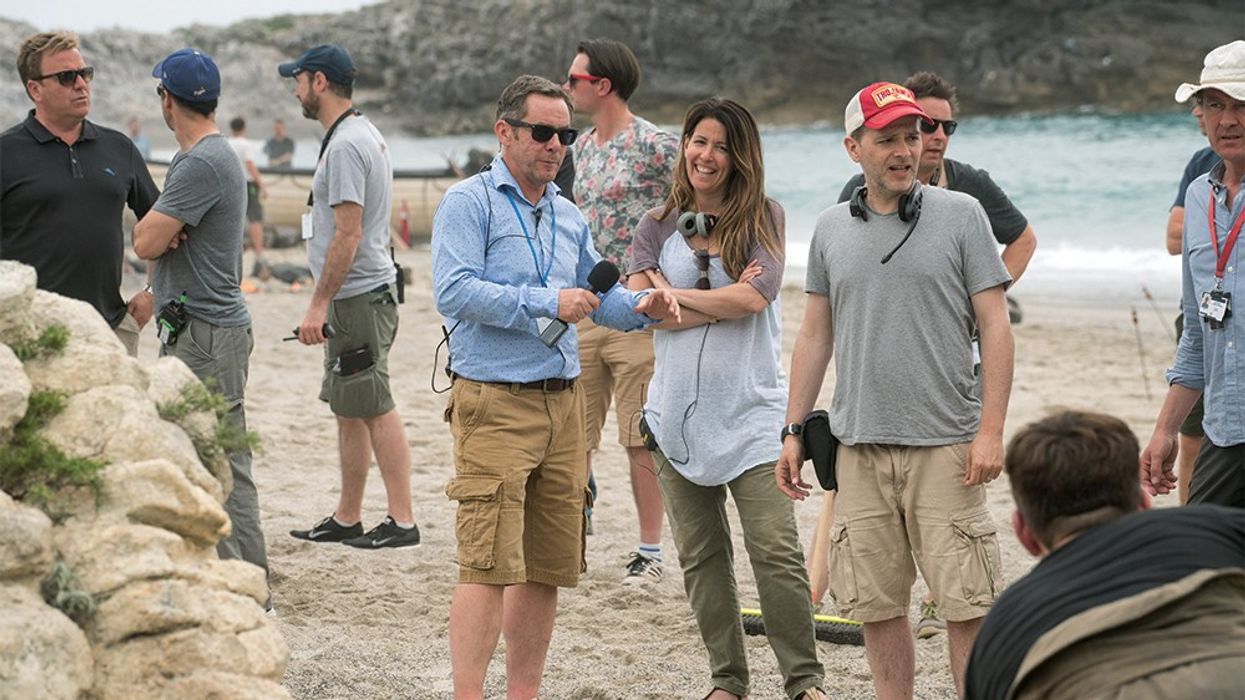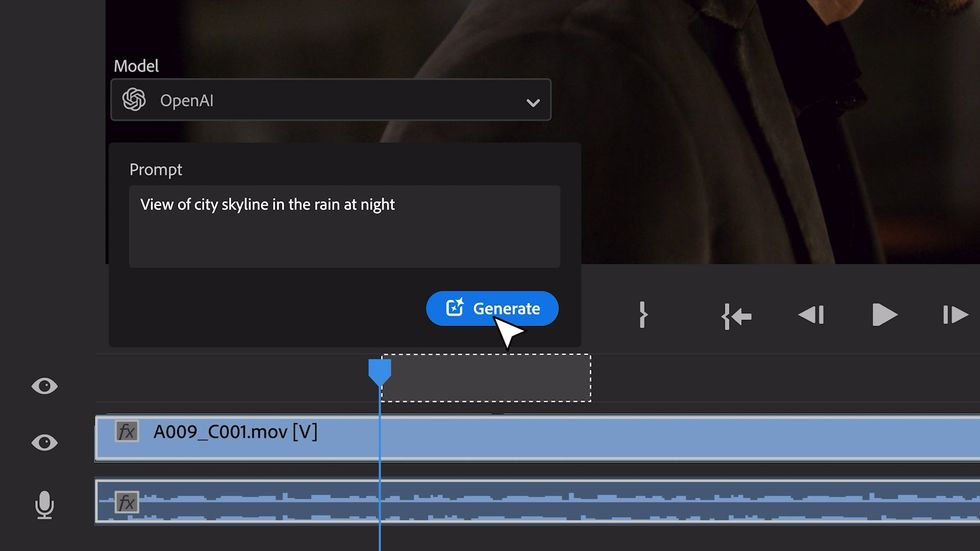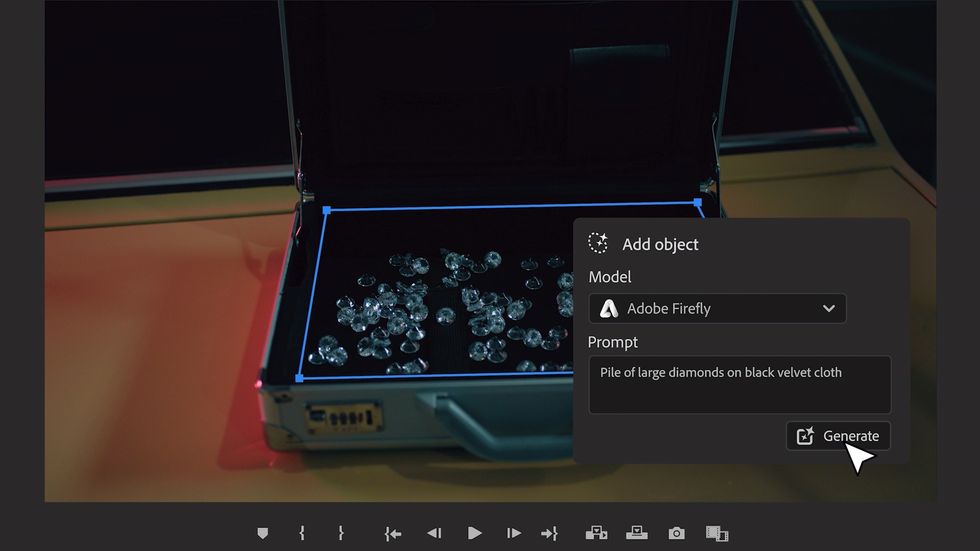What Is an Assistant Director? A Breakdown of Their Job and Duties on Set
What does an assistant director do, and what about the first AD and second-second? Let's dive in.

Film sets are full of jobs for people. No matter the size of the project, there is always a buzz when you get on set. Everyone there is working together to bring a vision to life. There are lots of famous above-the-line jobs, but we're trying to give you the information about the jobs that usually get forgotten.
No film could happen on time or on budget without the assistant director. They are the MVP of the set and responsible for so many important things. Today, I want to go over the job of the assistant director, the first AD, second AD, and I want to go over the titles they supervise. We'll define each position, cover the assistant director's salary, jobs, and any questions you might have.
So let's call the roll and get going.
What is an assistant director job and their duties?
Being a director means managing an entire set. That's a huge undertaking. So you know you need a little help... perhaps an assistant to help you build your vision and keep things happening the way you want. Enter the assistant director.
John Frankenheimer once said, "The first assistant director is just so important that the choice of that person is critical to the movie."
Assistant director definition
Who do you think keeps a director honest with time and setups? The AD is the person who follows the director around on set and updates them on all the important information happening day-to-day.
Assistant director film job description
The role of an assistant director includes tracking what happens day-to-day on a film. They have a list of the expectations and make sure you stay on schedule.
They are always arranging logistics, preparing call sheets, checking on the cast and crew, and maintaining order on the set. They need to have their finger on the pulse.
What else does an assistant director do?
The AD's other main responsibility is the health and safety of the crew. If they think a stunt isn't being planned, or that the permits are not in order, or something looks dangerous, they need to speak up.
Assistant to the director vs. assistant director
These are very different job titles.
An assistant to the director is the person who might drive them to set, get them coffee, or handle personal details. They are there just to service the director's personal needs.
As someone who has assisted a director, I did a lot of screenplay coverage for them, character breakdowns, and drove them from set to home. You make sure their favorite food is in their trailer and handle their calls and emails.
That's very different from the AD job description we are going over.
AD's job of calling the roll
If you remember nothing else from the post, remember this: one of the first AD's most important responsibilities is to "call the roll."
The roll is a list of specific cues that act as a shorthand on set. That way everyone knows what's going on at a particular time.
Let's go over the rolls.
Roll call terms
- "Waiting on..." means there's a delay in rolling a take. You want to label who or what is making you wait, like lighting, camera, talent, sound, etc.
- "Last looks, please" (or "Final checks") means that you are about to shoot and want hair, makeup, camera, etc to know this is their last chance to change things before you roll on the camera and the scene.
- "Quiet on the set" signals for people to be quiet when you are about to shoot.
- "Roll sound/Roll camera" (sometimes called "Turnover") signals those departments to begin recording. The sound recordist will confirm that the recording equipment is running by calling "Speed" or "Sound speed." Hearing this, the clapper loader calls out the "Scene" and "Take" numbers so that these details are on the recording. Then the camera operator or focus puller will say, "Camera rolling," and call for the clapper loader to "mark it," which is done by showing the slate and clapping it. Finally, the camera will settle into its framing, and the camera operator calls "set" or "frame."
- "Action" lets everyone know the scene is about to start, and it is the job of the first AD to call it, though the director may want to call it themselves, and let the AD cue the background action.
- Finally, the director says "cut" and then the first AD will check whether the director is happy with that particular take. If they are not, the AD will announce we are "going again," and then everyone will get back to work restaging it.
- If everyone went well, the assistant director says, "Moving on," and everyone sets up the next shot.
Assistant director salary
According to Zippia, "Assistant directors in the United States make an average salary of $58,842 per year or $28.29 per hour. People on the lower end of that spectrum, the bottom 10% to be exact, make roughly $34,000 a year, while the top 10% make $99,000. As most things go, location can be critical. California, New York, New Jersey, Maryland, and Connecticut provide the highest assistant director salaries."
This obviously fluctuates between indies, studios, and TV.
Assistant directors are union members and belong to the DGA, so your salary will be determined based on experience. Other sites say that the average annual salary for a first assistant director employed by studios is approximately $192,000.
Let's go over every level of AD that you can work.
First assistant director (or 1st AD)
At the top of the ladder, the 1st AD is responsible for every AD underneath them.
They are the ones who communicate directly with the director. The first AD and the unit production manager (or UPM) are the two highest "below the line" technical roles on set.
Role of a 1st AD
Aside from managing people, the 1st AD duties are to time out every scene to see how long they will take, and how many you think you can shoot in one day. First assistant director jobs take a ton of attention to detail. You need intimate knowledge of how the director works and how each actor will approach a scene.
You need to be an excellent communicator and make sure everyone is on the same page.
If you're lucky, the film you're working on has a massive budget, and you have some subordinates to help you out.
Second assistant director
The person directly below the 1st AD, the 2nd AD actually creates the daily call sheets from the production schedule.
They work hand-in-hand with the production coordinator to map out the entire shoot.
Second assistant director job duties
Aside from paperwork, you'll work as sort of a liaison between what happens backstage, and what's about to shoot.
Track gossip, but also see how things are going on with hair, makeup, costuming, the moods of people, and every other AD that comes after them.
3rd AD job and duties
You guessed it, the work keeps rolling downhill.
The third assistant director (also called the 2nd 2nd or second-second AD) will move actors from base camp to the shoot, accompany people back to trailers, and supervise the production assistants. It can be hard to tell the 3rd AD from the 2nd AD, so if you are confused, just ask.
How to become an assistant director
A lot of times people will enter as a production assistant. That's the lowest-level film job, where you will wrap cords, guard roads, and do whatever you are told. If you want to become part of the assistant director department, you will try to move up the ranks as a 3rd or 2nd AD.
You can just let the people in charge know, and hopefully, scale upward. Maybe try to become a runner for the department and make contacts to be hired on the next project as an AD.
The 2nd AD is the right hand of the 1st AD and must make themselves indispensable. Advancement within the field is built on relationships and trust.
Assistant director program
If you're looking to learn more about the role of an AD on set or moving into becoming an AD, check out I Need an Assistant Director! and Production Resource Group. They have good job postings and some real networking opportunities.
Outside of those great websites, the Director’s Guild of America (DGA) offers a training course for people to become ADs, and it's a great way to work on bigger movies and gather more opportunities to work.
What's next? Learn about gaffers!
Think back to when you first began dreaming about a life in movies. Did you hope to be a director? Producer? Writer? Cinematographer? Gaffer?
What is a gaffer, and what are they responsible for on set? We dig deep to find out.














